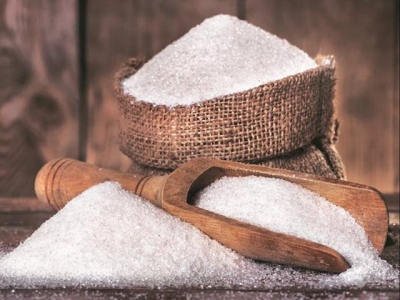Imported sugar is almost two times higher than domestic sugar

Imported sugar rose sharply in the first nine months of 2021 with the import volume being almost two times higher than that of domestic production.
According to Vietnam Sugarcane and Sugar Association, information from the General Department of Vietnam Customs shows that, in the first nine months of 2021, Vietnam spent USD 611 million to import 1.318.330 tons of sugar, 30% higher over the same period in 2020 and nearly twice as much as sugar produced from domestic sugarcane in the 2020-2021 crop year (689.830 tons).
The supply of sugar increases substantially while the sugar demand for direct consumption and production has decreased due to the influence of the Covid-19 pandemic combined with the recent rainy weather, leading to the price of sugar in October decreasing significantly compared to September.
The supply of sugar for the Vietnam market currently comes from official imports, sugar smuggled through the Southwest border, 97,000 tons of sugar imported under the tariff quota in 2021, additionally, at the end of November, there will be sugar from 2021-2022 pressing.
Thus the supply of sugar is abundant and will not show signs of shortage in November 2021 and the following months. Market advantages continue to belong to imported sugar and the domestic sugar price will fluctuate according to the global sugar price.
Due to the price of sugar globally being the highest in the last four years accompanied by very high international shipping costs, the price of sugar domestically will approach the sugar price of the region. However, it will still be lower than the price of imported Thailand sugar under anti-dumping and anti-subsidy taxes.
Related news
 Việt Nam achieves record cashew exports
Việt Nam achieves record cashew exports Việt Nam achieved its highest ever cashew exports in a year in 2017 with shipments worth US$3.52 billion. Việt Nam achieves record cashew exports
 Agriculture sector acts to lure more investments
Agriculture sector acts to lure more investments MARD will continue reforming administrative procedures and improving the business environment to lure more investments into the sector this year
 HCM City to host int’l exhibitions on agriculture
HCM City to host int’l exhibitions on agriculture Agriculture Hub comprising three international exhibitions on livestock breeding, cultivation, and agricultural machinery and equipment
 Prospects for export of agricultural, forestry and fishery products 2018
Prospects for export of agricultural, forestry and fishery products 2018 This is considered a feasible target, but the agricultural sector also needs to improve the quality of products in order to increase added value
 Record export of VN fruits in 2017
Record export of VN fruits in 2017 Việt Nam’s fruit and vegetable exports reached a record $3.5 billion for year-on-year growth of 43.02 per cent